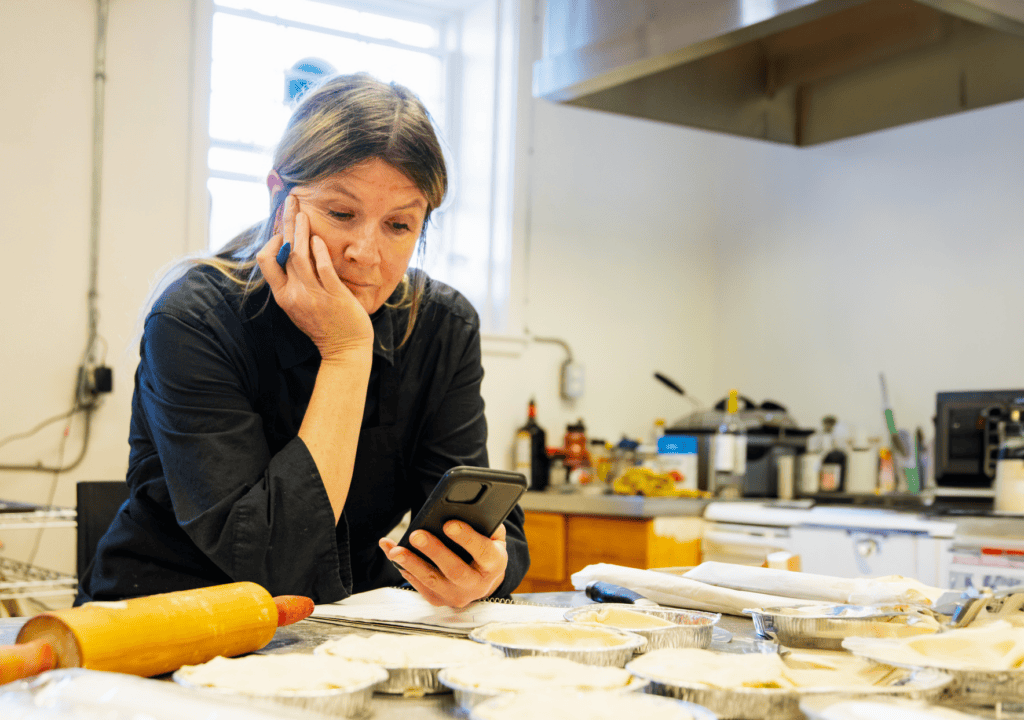Preventing Worker Burnout

This info sheet is part of our Safety Talk series for those who work in tourism and hospitality, developed in partnership with go2HR. Download a printer-friendly PDF version of this info sheet or watch the video.
What is Burnout?
According to the World Health Organization, burnout is an occupational issue “resulting from chronic workplace stress that has not been successfully managed.” It is important to understand that anyone can be at risk of burnout, and the signs may not always be obvious to the individual or others around them.
There are steps we can all take to help reduce the incidence of burnout at work, keep ourselves well, and promote a healthy workplace culture.
Avoiding burnout requires not only individual coping skills, but support from the workplace as well. Just as burnout can take time to set in, recovery also won’t happen overnight.
Possible Signs of Employee Burnout
- Absenteeism/regularly late for work
- Persistent negativity, cynicism or apathy
- Poor treatment of others
- Increase or changes in substance use
- Increased mistakes
- Decreased motivation or commitment.
Strategies to Prevent Burnout
- Pay attention to changes in an employee’s performance or behaviour
- Address concerns as you see them happening, don’t wait until they build up
- Make time to regularly check in with employees and listen
- Communicate, keep employees informed
- Provide clear performance expectations
- Celebrate individual and team accomplishments
- Encourage and respect personal and professional boundaries
Wellness Tips
Don’t shrug it off. If you’re struggling with burnout, or concerned about an employee, there are people you can talk to. In addition to your own supervisor or manager, visit the resources below for nonjudgmental help lines.
Other steps you can take:
- Lead by example. Purposefully disconnect and set boundaries around your time.
- Try to build healthy habits for unwinding and letting off steam after work, such as physical activity.
- Limit your intake of substances such as alcohol and caffeine. Although they might feel good in the short-term, they can interfere with sleep and contribute to other issues.
Additional Resources
- Crisis Lines: 1-800-784-2433 or 9-8-8
- Mental Health Support Line: 310-6789
- Drug and Alcohol Info and Referral: 1-800-663-1441
- Mental Health Services: helpstartshere.gov.bc.ca
- Mental Health Information: heretohelp.bc.ca
- Free Wellness Program: bouncebackbc.ca

Understanding, Identifying, and Preventing Burnout Workshop
Learn what burnout is and isn’t, systemic ways to prevent burnout and psychological harm, ways to cope with mild burnout, how to notice signs in coworkers, and provide support.

Mental Health Awareness Workshop
Build confidence to talk about mental health, strengthen resilience, and apply practical strategies to support co-workers facing mental health challenges.

Mental Health Awareness Lunch & Learn
Build confidence to talk about mental health, strengthen resilience, and apply practical strategies to support co-workers facing mental health challenges.

Resilience During Difficult Times Workshop
Learn to recognize and respond to stress, understand its impact on your well-being, and build resiliency through practical strategies for difficult situations.

Resilience During Difficult Times Lunch & Learn
Learn to recognize and respond to stress, understand its impact on your well-being, and build resiliency through practical strategies for difficult situations.